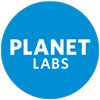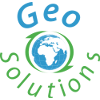This talk will cover a FOSS4G case study in which a workflow was implemented in several minority public health organizations in 2013. The three organizations were: 1) the Urban Indian Health Institute (Seattle, WA), 2) Papa Ola Lokahi (Honolulu, HI) and 3) The Nature Conservancy of Hawaii (Honolulu, HI). The end users were not GIS professionals but public health staff. Such community based public health organizations do not typically have dedicated GIS staff or budgets for GIS. However, they have each identified mapping needs. The overarching goals of the project were to demonstrate that FOSS4G tools could be effective in minority public health applications, and that they could be used by non-GIS public health staff. Therefore, a focus was placed on identifying the most intuitive and low cost solution meeting their needs.
The workflow started with field data collection and included spatial analysis and online data presentation. Field data collection was performed using smart phones and tablets that the end users already owned. Analysis was done via QGIS and final data presentation was done via GIS Cloud. Training sessions were conducted and support was provided throughout the year. However, each organization was able to use the tools with very little follow up support. Each project produced good results, and each is planning on continuing with additional projects in 2014. The workflow will be introduced and results of the three case studies shared.
This work was funded by the National Library of Medicine’s Division of Specialized Information Services via their Outreach and Special Populations Branch.




